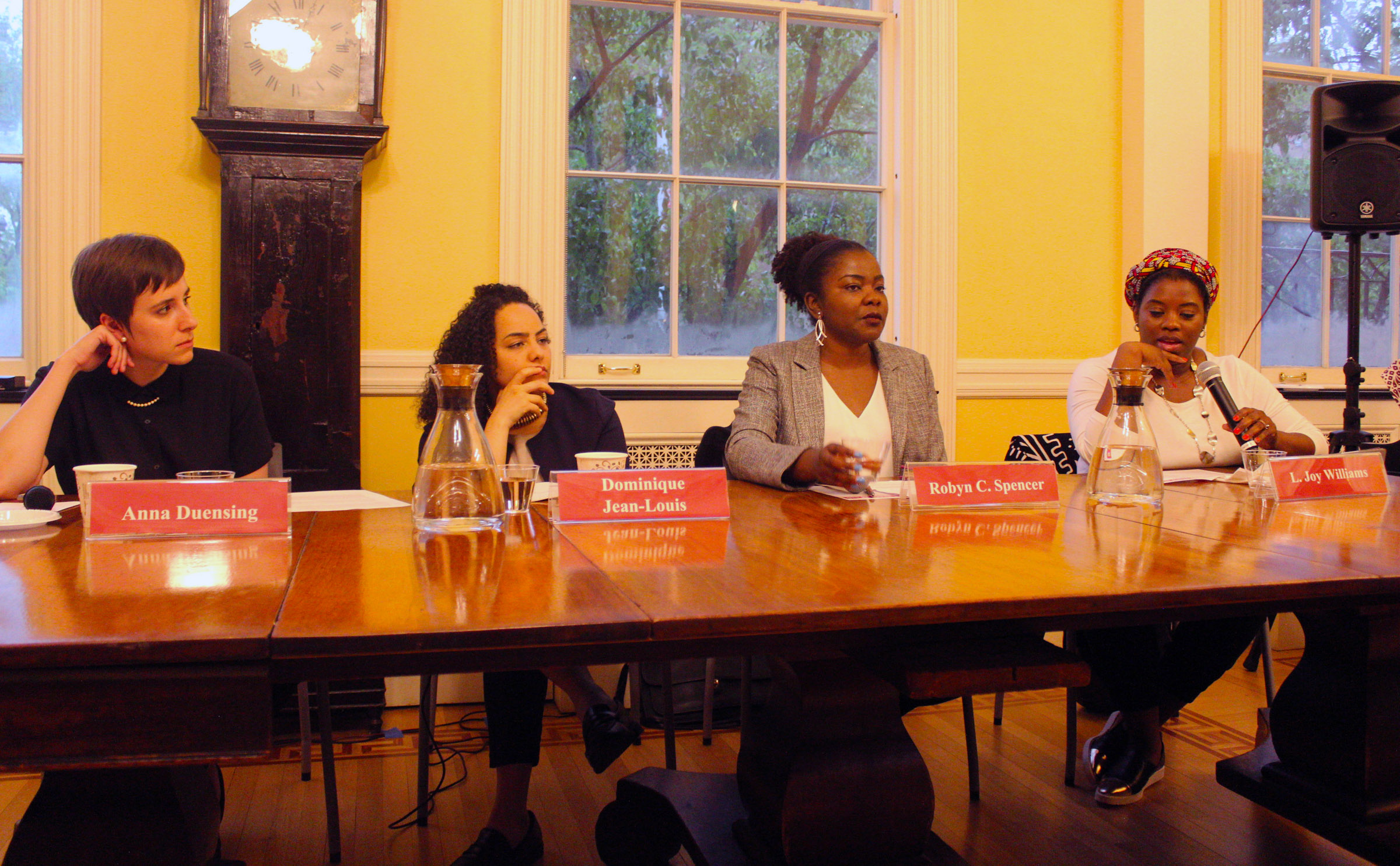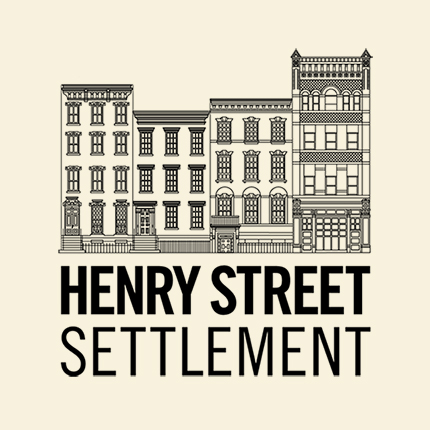Celebrating the 110 Year Legacy of the NAACP
By Chelsea Jupin

Above: Anna Duensing, Dominique Jean-Louis, Robyn C. Spencer, and L. Joy Williams at Henry Street Settlement, May 29, 2019.
“The NAACP is radical history. It’s women’s history. It’s working-class history. It’s a history that we need to know in order to understand the way to move forward,” said Robyn C. Spencer, professor at City University of New York and author of The Revolution Has Come: Black Power, Gender, and the Black Panther Party in Oakland, on May 29 in Henry Street’s historic dining room. In that room, 110 years ago, activists and social justice leaders held the opening reception of the conference that kicked off to the founding of the National Association for the Advancement of Colored People (NAACP). Last month, a new generation of passionate activists reconvened there to commemorate the anniversary with a panel exploring the organization’s history and future.
The evening began with remarks from Henry Street Settlement Executive Director David Garza, who noted that the Settlement has “an extraordinary history of firsts that we could not be more proud of, but one of the most luminous firsts is to be one of the first meeting places of the NAACP.” Garza introduced Henry Street Settlement Public Historian Katie Vogel, who described the impetus for the first meeting, starting with the Springfield race riot of 1908 that led NAACP charter members including W.E.B. duBois and Henry Street founder Lillian Wald to take action.
The evening’s moderator—Anna Duensing public historian and PhD candidate in history and African American Studies at Yale University—asked the panelists what they see as the legacy of the NAACP. Dominique Jean-Louis, public historian of African American history & Caribbean immigration and project curatorial historian at the New-York Historical Society, said that the NAACP’s efforts in storytelling and communications of its activism have been the model for the past century. The organization’s use of powerful visuals, as well as its understanding and usage of news and media, have not only endured but influenced contemporary organizations like Black Lives Matter. “We take for granted the role of activism and the way it unfolds—so much of that was pioneered by the NAACP.”
L. Joy Williams, president of Brooklyn NAACP and founder and principal of the New York–based consulting firm LJW Strategies, echoed the organization’s lasting impact, citing the unrelenting need for its work. “It’s been 110 years, and we still have not had to change that mission,” she said. Williams’s time working for the NAACP has led her to see the organization’s structure as key to its longevity, which finds strength and support in its local chapter. “In individual communities and regions, people are volunteering and working on issues that are relevant to where people live.”
When asked about the NAACP’s role in a seemingly still-turbulent future, Spencer said that the organization feels particularly relevant these days. “I’m excited to see everyone here at an event like this. This is a movement of encouragement.”
